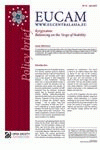Democracy in Central Asia: Sowing in Unfertile Fields?
Democracy in Central Asia: Sowing in Unfertile Fields?
Author(s): Jos Boonstra
Subject(s): Governance, Economic policy, Government/Political systems, International relations/trade, Economic development, Geopolitics
Published by: CEPS Centre for European Policy Studies
Keywords: Central Asia; democracy; unfertile fields; sowing; European Union; good governance; regime; economic growth; economic policy;
Summary/Abstract: Central Asia is one of the most repressive regions in the world. Compared with the two other former-Soviet regions of Eastern Europe (Belarus, Moldova and Ukraine) and the South Caucasus (Armenia, Azerbaijan and Georgia), Central Asia shows the least inclination towards democratisation. Although the five Central Asian republics are very different from each other none can be labelled a democracy or even claim to have made substantial progress towards democratic practices. The European Union (EU) in its 2007 Strategy for Central Asia set out to promote democracy, human rights, rule of law and good governance. The EU is active in urging Central Asian regimes to respect human rights, has set up a regional Rule of Law Initiative and runs several projects focusing on good governance, but so far has not been able to advance in any substantial way on several other aspects of democratisation, such as parliamentary reform or capacity-building for political parties.
Series: EUCAM - Policy Brief
- Page Count: 5
- Publication Year: 2012
- Language: English
- Content File-PDF

